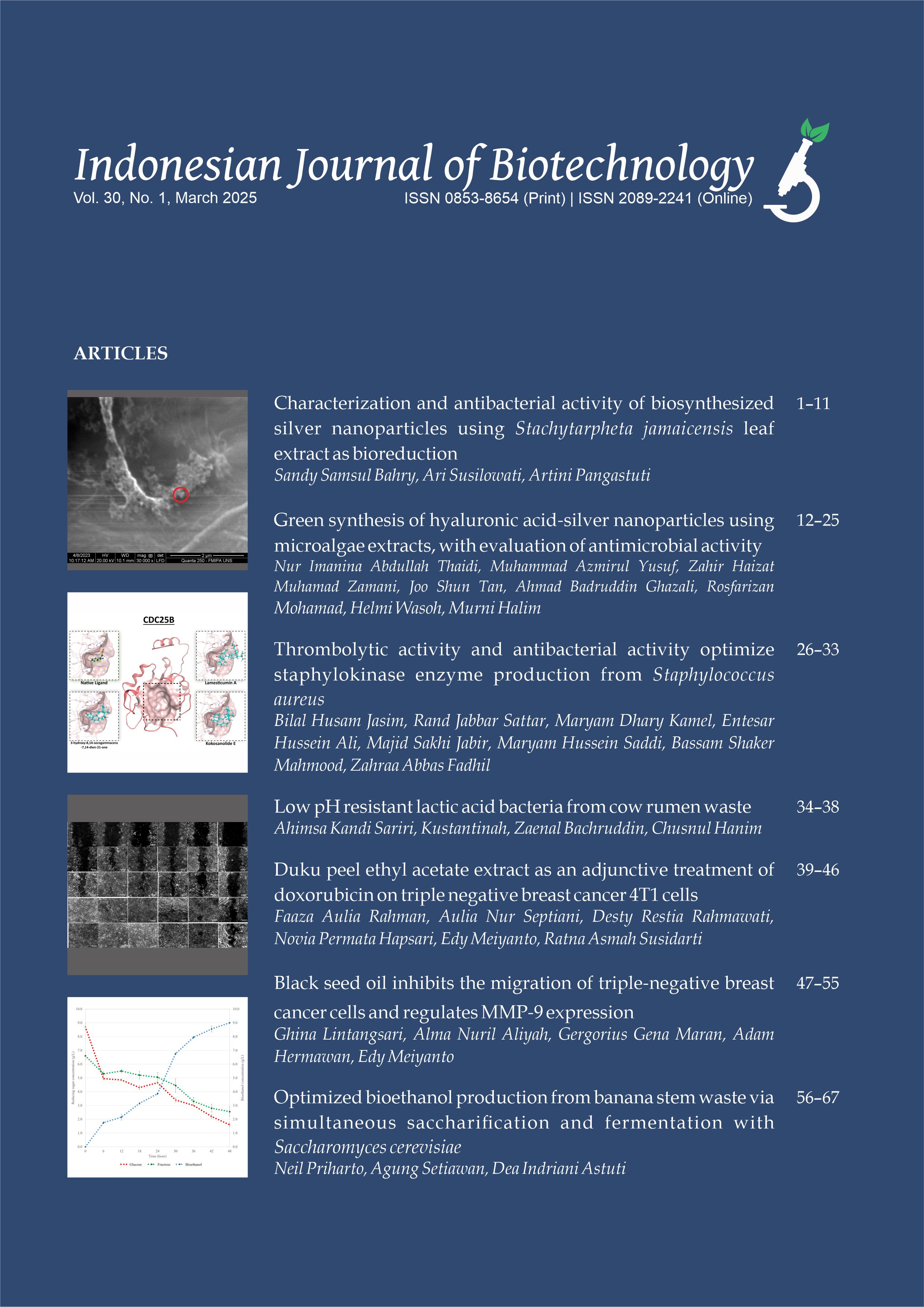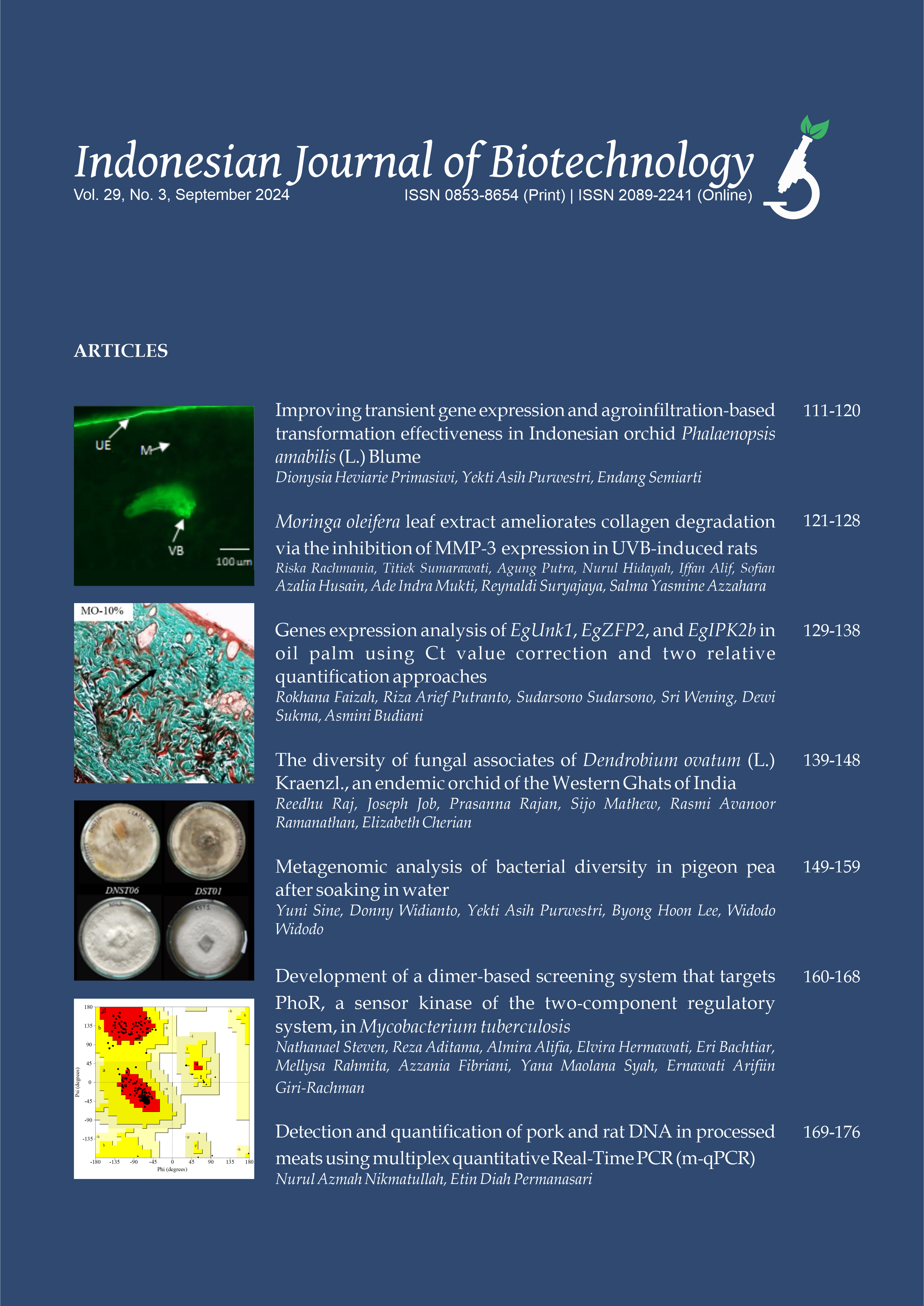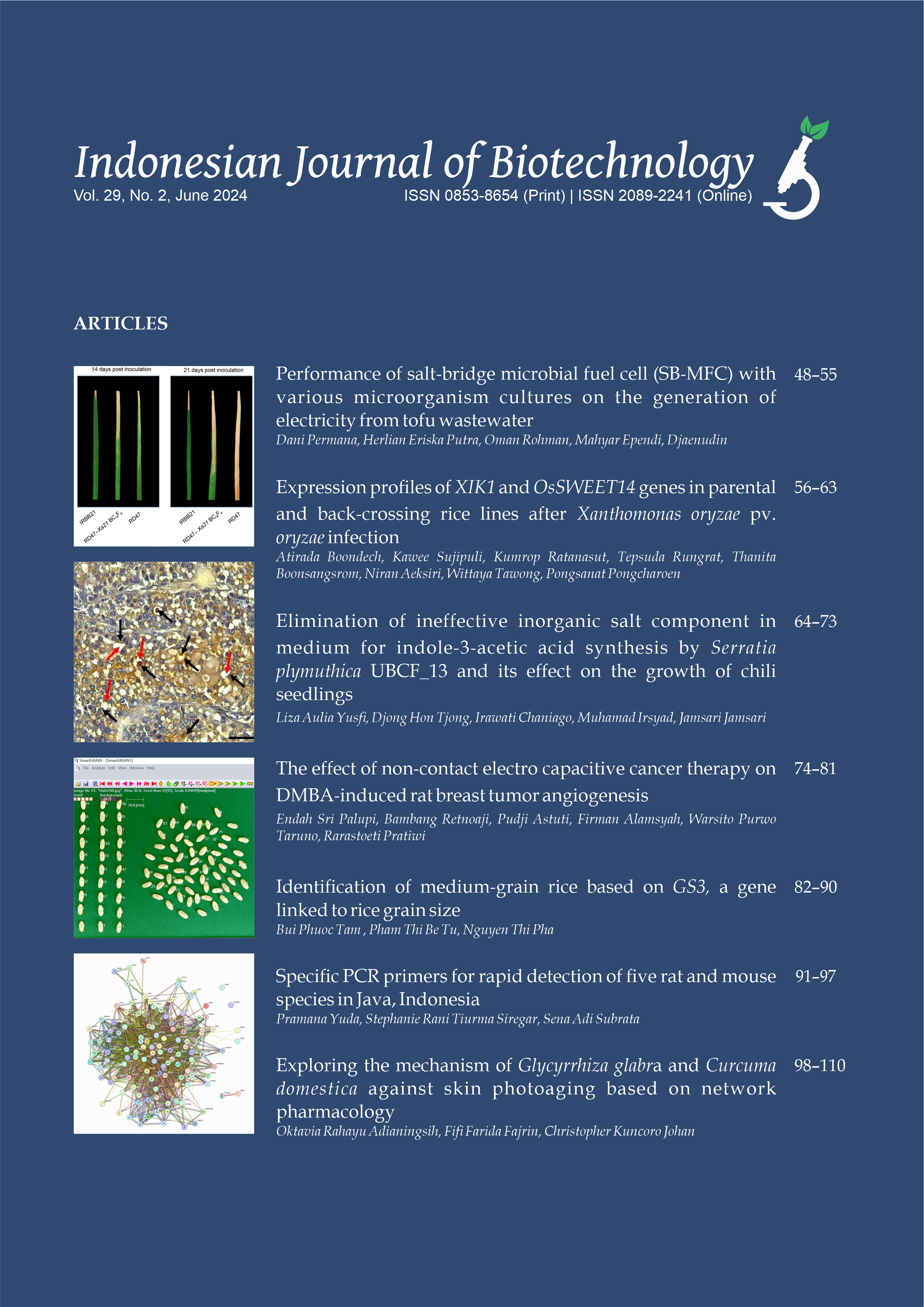Superoxide Dismutase of Micrococcus sp. S2 and Its Involve in Paraquat Detoxification
Sebastian Margino(1*), Erni Martani(2), Medhina Magdalena(3)
(1)
(2)
(3)
(*) Corresponding Author
Abstract
As an active ingredient of herbicide, paraquat will induce formation of superoxide radicals. The previous
research succeeded in isolating paraquat degrading bacteria from peat soil, Micrococcus sp. S2, that tolerant to high
concentration of paraquat. An anti-oxidative enzyme, namely superoxide dismutase (SOD, EC.1.15.1.1), was
believed to be responsible for the paraquat tolerance. This research was conducted to study the characteristic of the
SOD synthesize by Micrococcus sp. S2 and its ability on neutralize superoxide which arise from paraquat reoxidation.
To observe the effect of paraquat on Micrococcus sp. S2, the bacteria was grown in 10% Luria Bertani broth
medium amended with several concentrations of paraquat, from 0 (control) up to 100 mg/ml. Within incubation
time of 72 hours, bacterial growth, activity of superoxide dismutase and paraquat residue were analyzed. The
isozymes of superoxide dismutase were distinguished using two kinds of specific inhibitor, namely HO and KCN. 2 2
The results showed that paraquat significantly inhibit the growth of Micrococcus sp. S2. The higher paraquat
cocentration in the medium caused the higher growth inhibition. However, the bacteria is still survive in the medium
containing toxic herbicide, and this ability was suggested related to superoxide dismutase activity in removing the
superoxide radicals. Analysis using gel electrophoresis indicated that at least three types of SOD isozyme were
synthesized by Micrococcus sp. S2; they were Ferri-SOD (Fe-SOD), Mangani-SOD (Mn-SOD), and the last one was
suspected to be the Cupro Zinc-SOD (CuZn-SOD). The Mangani-SOD was suspected to play an important roles on
detoxifying superoxide which arise from paraquat oxidation.
Keywords : Micrococcus sp.S2, paraquat, superoxide dismutase, isozymes
research succeeded in isolating paraquat degrading bacteria from peat soil, Micrococcus sp. S2, that tolerant to high
concentration of paraquat. An anti-oxidative enzyme, namely superoxide dismutase (SOD, EC.1.15.1.1), was
believed to be responsible for the paraquat tolerance. This research was conducted to study the characteristic of the
SOD synthesize by Micrococcus sp. S2 and its ability on neutralize superoxide which arise from paraquat reoxidation.
To observe the effect of paraquat on Micrococcus sp. S2, the bacteria was grown in 10% Luria Bertani broth
medium amended with several concentrations of paraquat, from 0 (control) up to 100 mg/ml. Within incubation
time of 72 hours, bacterial growth, activity of superoxide dismutase and paraquat residue were analyzed. The
isozymes of superoxide dismutase were distinguished using two kinds of specific inhibitor, namely HO and KCN. 2 2
The results showed that paraquat significantly inhibit the growth of Micrococcus sp. S2. The higher paraquat
cocentration in the medium caused the higher growth inhibition. However, the bacteria is still survive in the medium
containing toxic herbicide, and this ability was suggested related to superoxide dismutase activity in removing the
superoxide radicals. Analysis using gel electrophoresis indicated that at least three types of SOD isozyme were
synthesized by Micrococcus sp. S2; they were Ferri-SOD (Fe-SOD), Mangani-SOD (Mn-SOD), and the last one was
suspected to be the Cupro Zinc-SOD (CuZn-SOD). The Mangani-SOD was suspected to play an important roles on
detoxifying superoxide which arise from paraquat oxidation.
Keywords : Micrococcus sp.S2, paraquat, superoxide dismutase, isozymes
Full Text:
PDFArticle Metrics
Refbacks
- There are currently no refbacks.
Copyright (c) 2015 Indonesian Journal of Biotechnology









